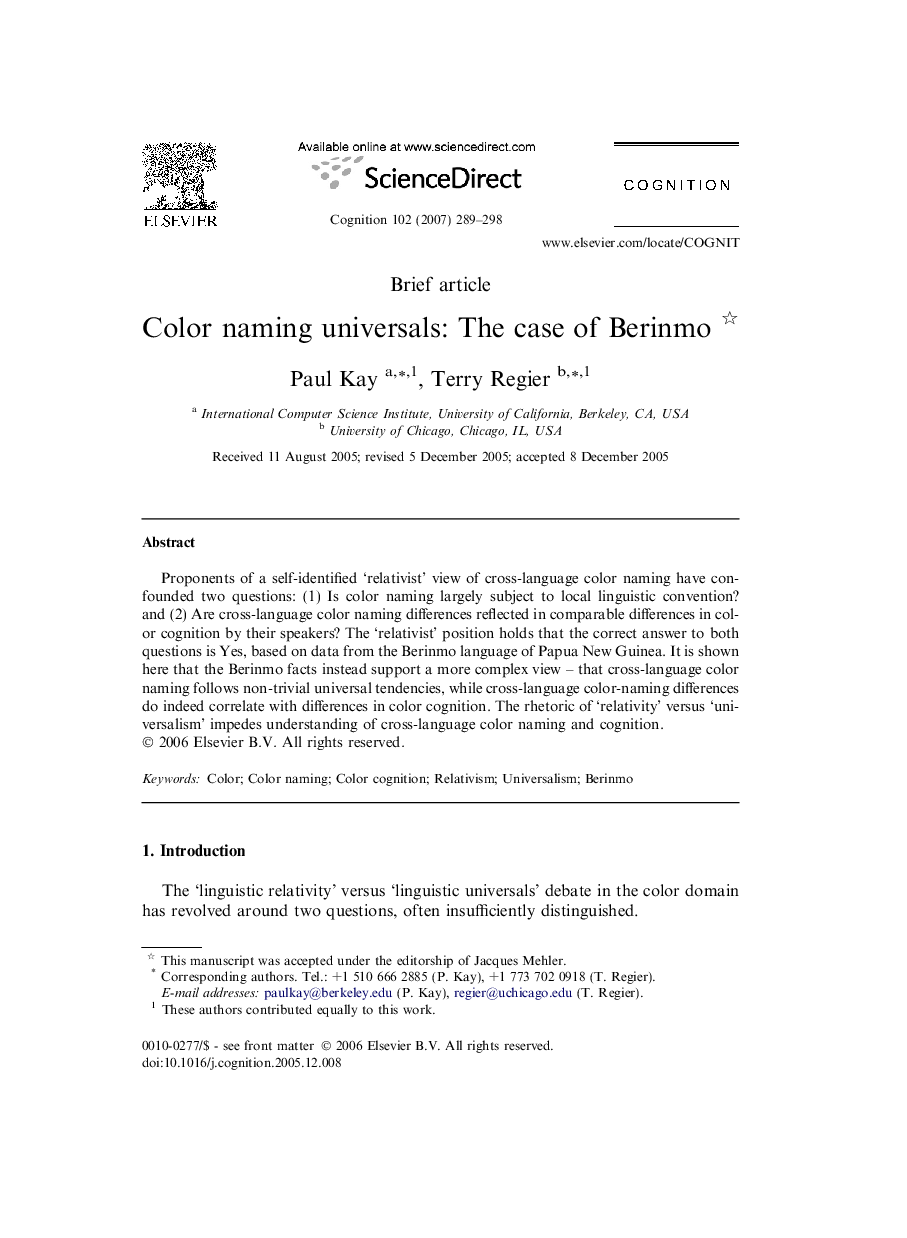| Article ID | Journal | Published Year | Pages | File Type |
|---|---|---|---|---|
| 10457826 | Cognition | 2007 | 10 Pages |
Abstract
Proponents of a self-identified 'relativist' view of cross-language color naming have confounded two questions: (1) Is color naming largely subject to local linguistic convention? and (2) Are cross-language color naming differences reflected in comparable differences in color cognition by their speakers? The 'relativist' position holds that the correct answer to both questions is Yes, based on data from the Berinmo language of Papua New Guinea. It is shown here that the Berinmo facts instead support a more complex view - that cross-language color naming follows non-trivial universal tendencies, while cross-language color-naming differences do indeed correlate with differences in color cognition. The rhetoric of 'relativity' versus 'universalism' impedes understanding of cross-language color naming and cognition.
Related Topics
Life Sciences
Neuroscience
Cognitive Neuroscience
Authors
Paul Kay, Terry Regier,
